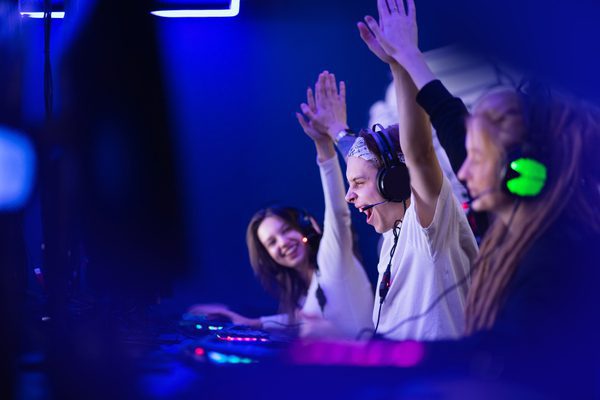The years in college are spent learning, creating memories and fostering relationships that last well beyond graduation. Due to the current COVID-19 pandemic, colleges are necessarily focusing on safety and academics. For many students, the lack of activities that involve both physical and social proximity has hindered them from meeting peers and finding a sense of belonging.
Traditional in-person events have a way of igniting the community mindset to establish common experiences among students from a variety of backgrounds. In the absence of these events, there is another way to initiate the traditional mechanisms of friendship and formation through video games. Even when played physically distanced in the form of esports leagues, video games have a way of establishing a psychological sense of community.
Being part of something bigger than oneself is crucial in forming a community, especially on a college campus. Esports recreational leagues provide the opportunity to enhance three critical social psychological constructs: social identity, sense of community and social support. Social identity is enhanced on an individual level by establishing both member and player identity within the recreational league. With increased participation, a player begins to identify as part of that community. Traditionally students have found this larger community in recreational sports such as soccer and basketball. Especially in the physically distanced environment, the social identity can be achieved through the interactions that happen through esports leagues.
Social identity often leads to social support as the virtual relationship becomes a friendship beyond the recreational esports league. By sharing information about other campus events or scheduling a time to meet physically distanced on campus with their league, fostering relationships within the league can have lasting effects far after the league has ended.
As social identities grow both online and offline, a sense of community is forged. Common ground is created through the play of popular games such as Rocket League, Fortnite and FIFA. This involvement is fantastic because students then choose to be involved in successive leagues with their new connections.
Friendships and community are foundational elements of the college experience. This can also be achieved virtually when the collegiate institution has created a space for it to happen. Recreational esports are naturally inclusive and diverse. It would behoove campus recreation departments to implement recreational esports leagues as a way to aid in the development of friendships and to create an overall sense of community.
Daniel Herz is the chief revenue officer at Mission Control. For more information, email daniel@missioncontrol.com.











